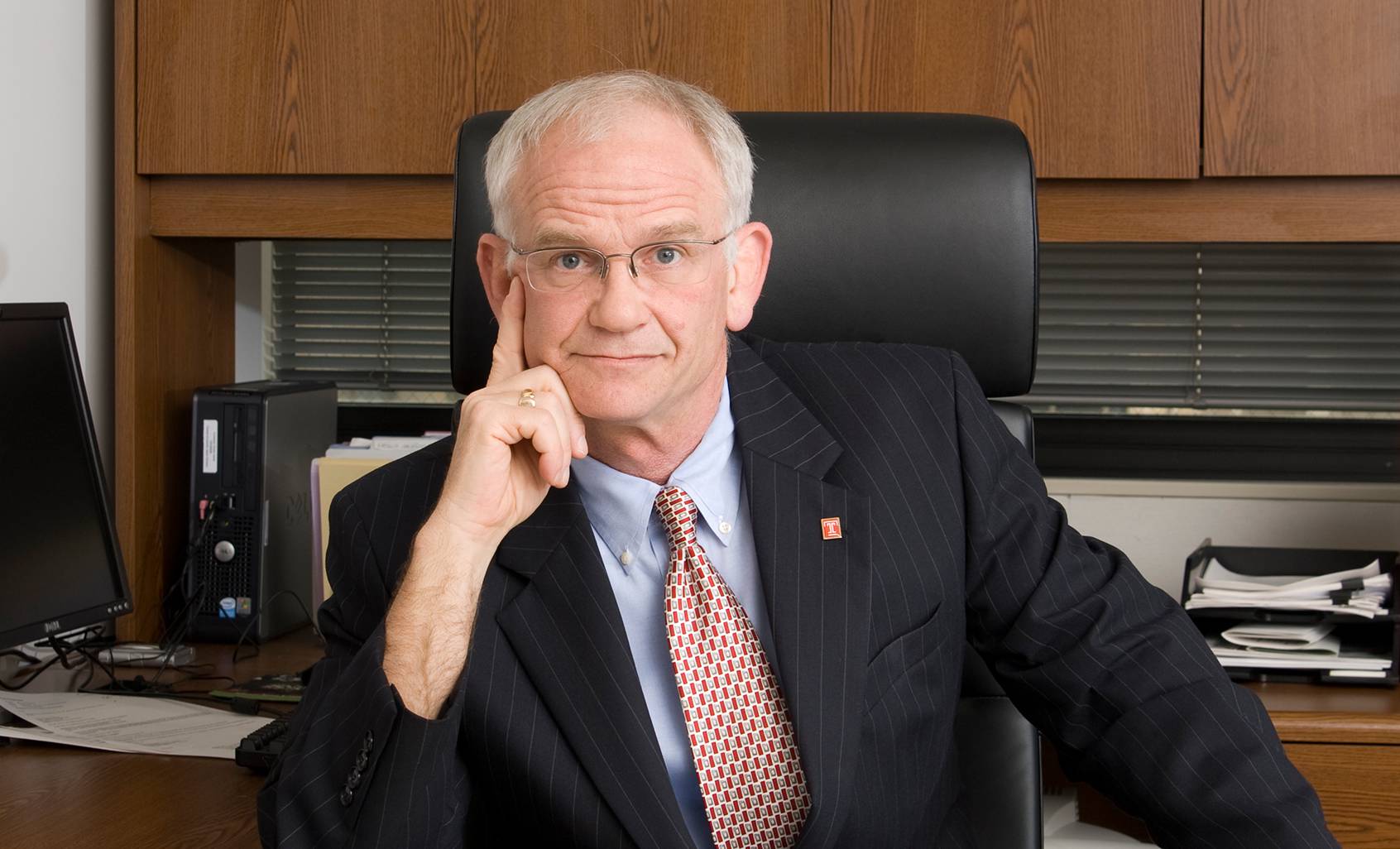Moving On With Our Students
December 13, 2018
As we approach the end of the last calendar year at our present campus there is a natural desire to look forward and look back. I am in the very pleasant position of doing both at the same time.
When we moved to the present campus 22 years ago, Rich Joslyn was dean at TUJ and since been a professor at Main Campus in the College of Liberal Arts. Professor Joslyn and I are working on a book about the history of TUJ. He is writing about the years from TUJ’s founding in 1982 until the mid-2000s and I am writing about TUJ from the mid-2000s until now, and on into the future. The book is not just about TUJ’s history, it is also about how Japanese-American relations over these 36 years have shaped who we are (and I hope we’ve had at least some influence on those relations), as well as how TUJ’s development as an overseas branch campus of an American university in Japan has also been an excellent example of the globalization of our world.
Many things have changed since we moved to our present location in Minami-Azabu. For one, TUJ has become a much more stable entity. We’ve been here at San-no-Hashi for 22 years, but in the 14 years from 1982 to 1996, TUJ had four different campuses. TUJ has also grown as an academic institution, adding more undergraduate majors and graduate degrees. However, the greatest change is the change in our student body. In 2005 TUJ was the first institution to be designated by the Ministry of Education, Sports, Culture, Science and Technology as a “Foreign University, Japan Campus,” and with that designation came, among other things, the ability to support foreign student visas. That meant that we were able to recruit students from all over the world. Previously, TUJ students had been predominantly Japanese, and American.
When I walk around TUJ and think about where we are headed with the move to the new campus next year, it is the tremendous diversity and global nature of our students that I see. I have spent the past 42 years of my life working in Japanese and American universities, and I never never worked anywhere as diverse, and exciting, as TUJ. Part of that is due to who we are, an American university in the middle of Tokyo. Part of that is due to the very diverse and interesting staff and faculty members who do such a great job. But for the most part it is the students. When I see our students, I see the future of the world. Or, rather, it is the future of the world as I hope it will be.
When you bring people from over 60 countries together, put them in close proximity to each other, and ask them to discuss and debate such topics as business, economics, politics, art, religion, and social mores, there are bound to be disagreements. I am a firm believer in the dialectic. In my world as it should be, when there is intellectual struggle, when ideas are hotly or coolly debated, then the end result will be a coming together that forms a synthesis of those ideas.
But for this to happen there must be preconditions: respect, openness, and the ability to change one’s thinking. I always say the same thing to in-coming students at orientation. When you meet people from other countries, cultures, religions, or ethnic groups, you don’t have to like everything they do, wear, eat, or how they behave. We are all human beings, not saints, and we all have our built-in cultural, ethnic, and religious biases. However, what we all must do is respect others, and make the effort to understand why they are different and where those differences come from. By doing that we not only gain a greater understanding of the world around us, we also gain a greater understanding of who we are and where our biases originate. We also have to be open with one another; there can be no hiding from the world. If we challenge others intellectually, then we must also challenge ourselves. We must especially challenge ourselves to remain open to change, to see what we thought strange as normal, to see the merit in otherness.
The world today is beset with questions about how we can remain open to each other. As problems created by technological globalization grow, we all want to crawl back into our safe spaces. But we cannot. We cannot hide from the conditions on this earth that have been caused by human behavior, whether it is environmental change, ethnic struggles, trade wars, or political conflict.
Pardon me if I sound hyperbolic, and hackneyed, but the purpose of TUJ is to educate those people who will lead us into a new world. The near future will be all about the struggle to understand and manage our world as a global entity. We will need people who can lead, who are not afraid to open themselves to different ideas and to others who are different. I have every confidence that TUJ is headed toward a future made brighter by its students.
With best regards,
![]()

